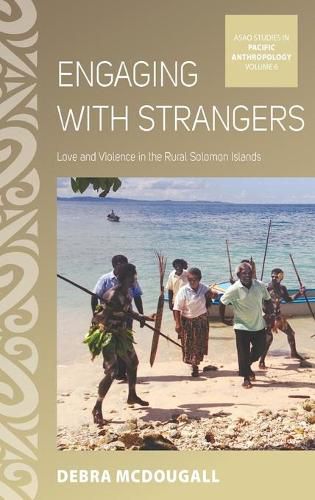Readings Newsletter
Become a Readings Member to make your shopping experience even easier.
Sign in or sign up for free!
You’re not far away from qualifying for FREE standard shipping within Australia
You’ve qualified for FREE standard shipping within Australia
The cart is loading…






This title is printed to order. This book may have been self-published. If so, we cannot guarantee the quality of the content. In the main most books will have gone through the editing process however some may not. We therefore suggest that you be aware of this before ordering this book. If in doubt check either the author or publisher’s details as we are unable to accept any returns unless they are faulty. Please contact us if you have any questions.
The civil conflict in Solomon Islands (1998-2003) is often blamed on the failure of the nation-state to encompass culturally diverse and politically fragmented communities. Writing of Ranongga Island, the author tracks engagements with strangers across many realms of life-pre-colonial warfare, Christian conversion, logging and conservation, even post-conflict state building. She describes startling reversals in which strangers become attached to local places, even as kinspeople are estranged from one another and from their homes. Against stereotypes of rural insularity, she argues that a distinctive cosmopolitan openness to others is evident in the rural Solomons in times of war and peace.
$9.00 standard shipping within Australia
FREE standard shipping within Australia for orders over $100.00
Express & International shipping calculated at checkout
This title is printed to order. This book may have been self-published. If so, we cannot guarantee the quality of the content. In the main most books will have gone through the editing process however some may not. We therefore suggest that you be aware of this before ordering this book. If in doubt check either the author or publisher’s details as we are unable to accept any returns unless they are faulty. Please contact us if you have any questions.
The civil conflict in Solomon Islands (1998-2003) is often blamed on the failure of the nation-state to encompass culturally diverse and politically fragmented communities. Writing of Ranongga Island, the author tracks engagements with strangers across many realms of life-pre-colonial warfare, Christian conversion, logging and conservation, even post-conflict state building. She describes startling reversals in which strangers become attached to local places, even as kinspeople are estranged from one another and from their homes. Against stereotypes of rural insularity, she argues that a distinctive cosmopolitan openness to others is evident in the rural Solomons in times of war and peace.